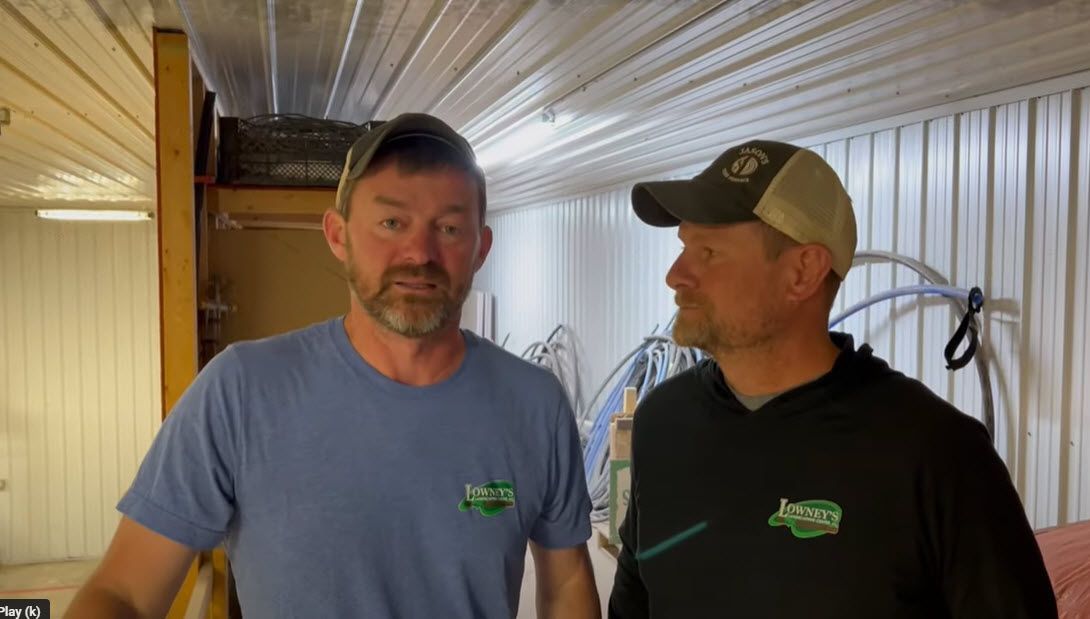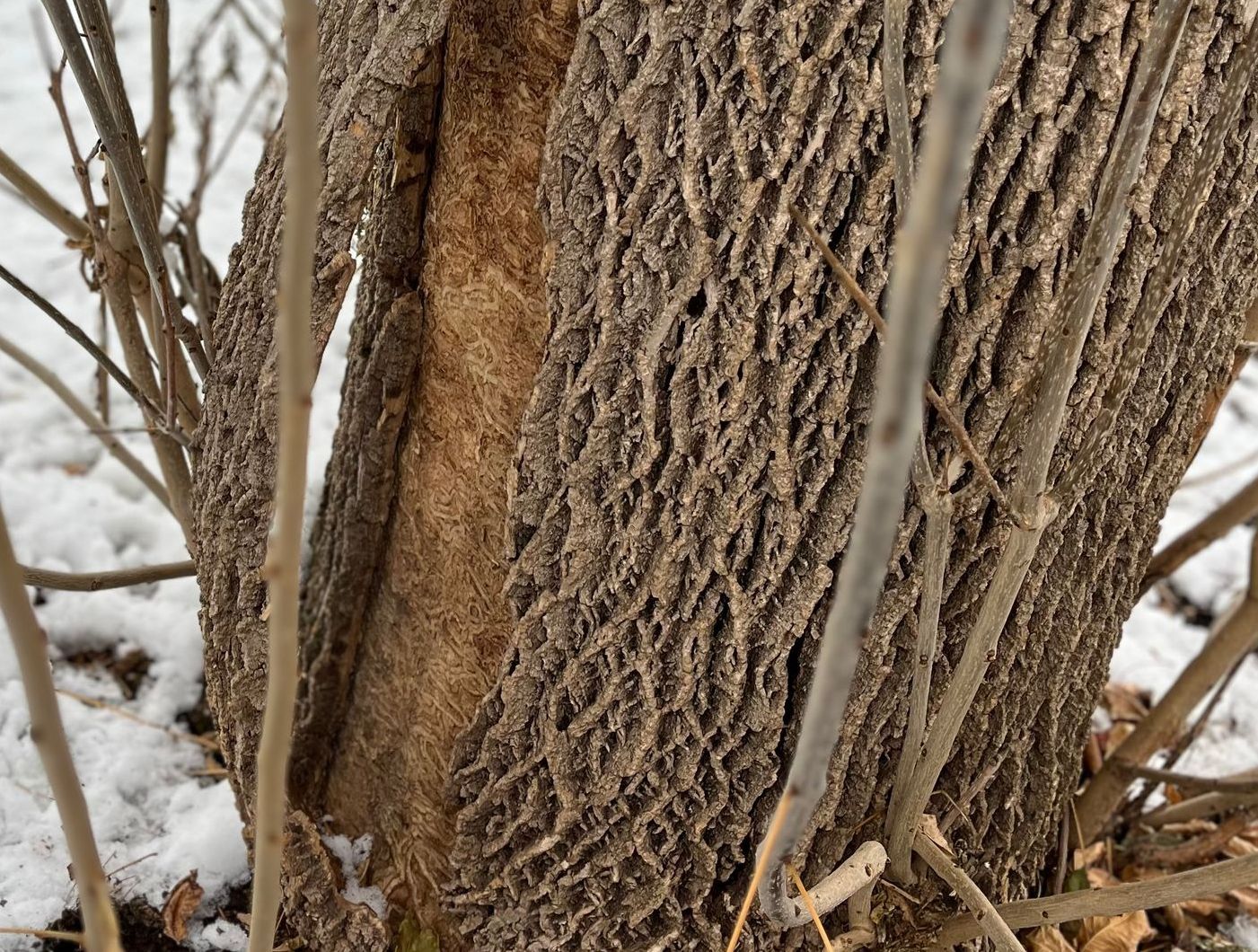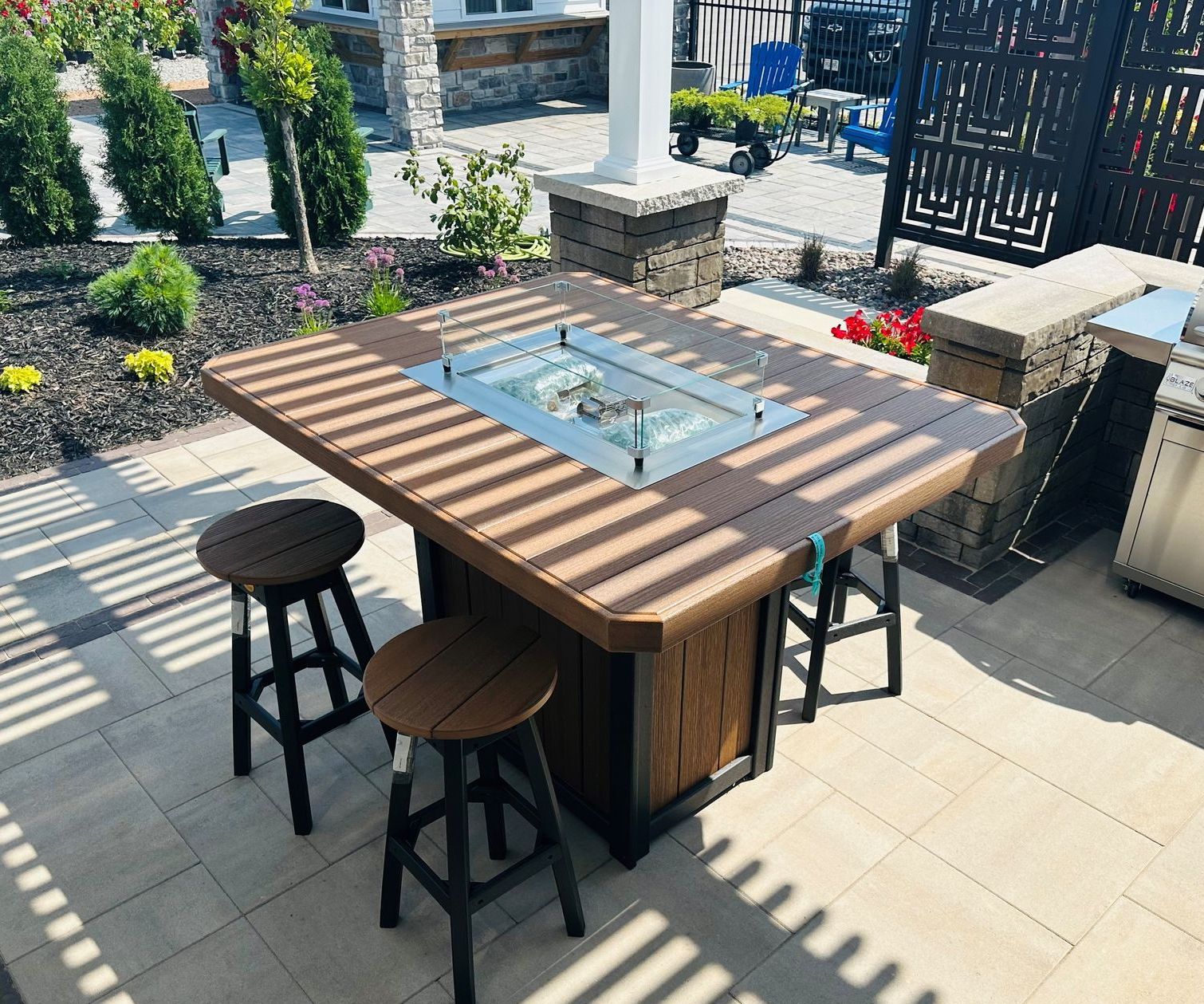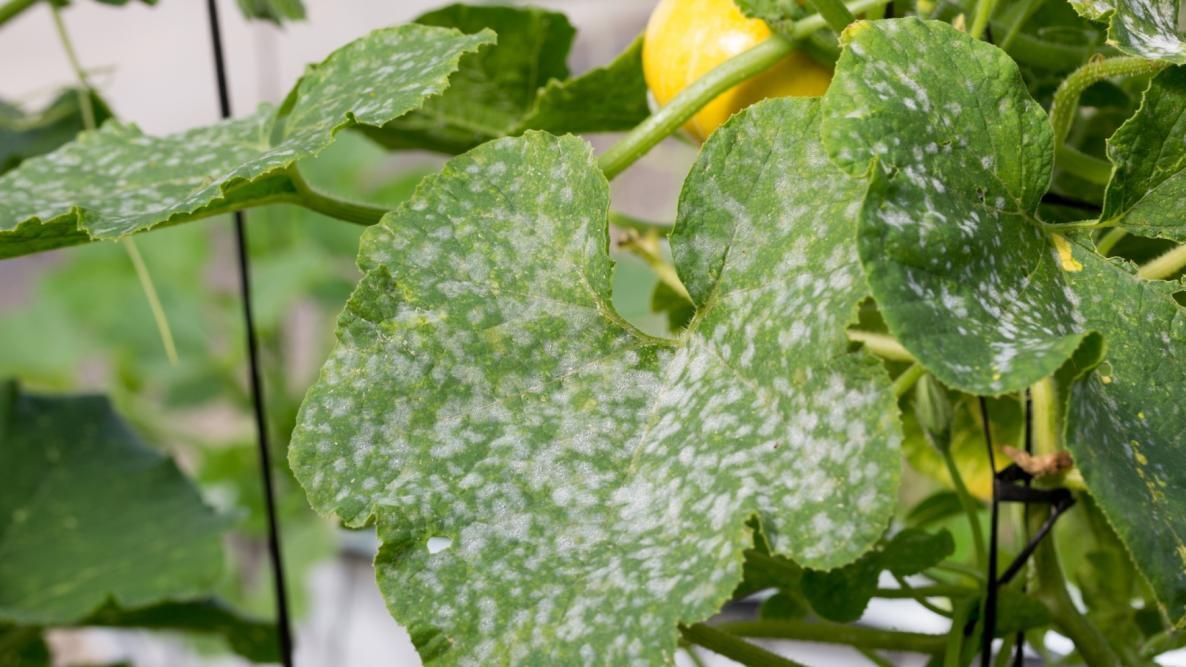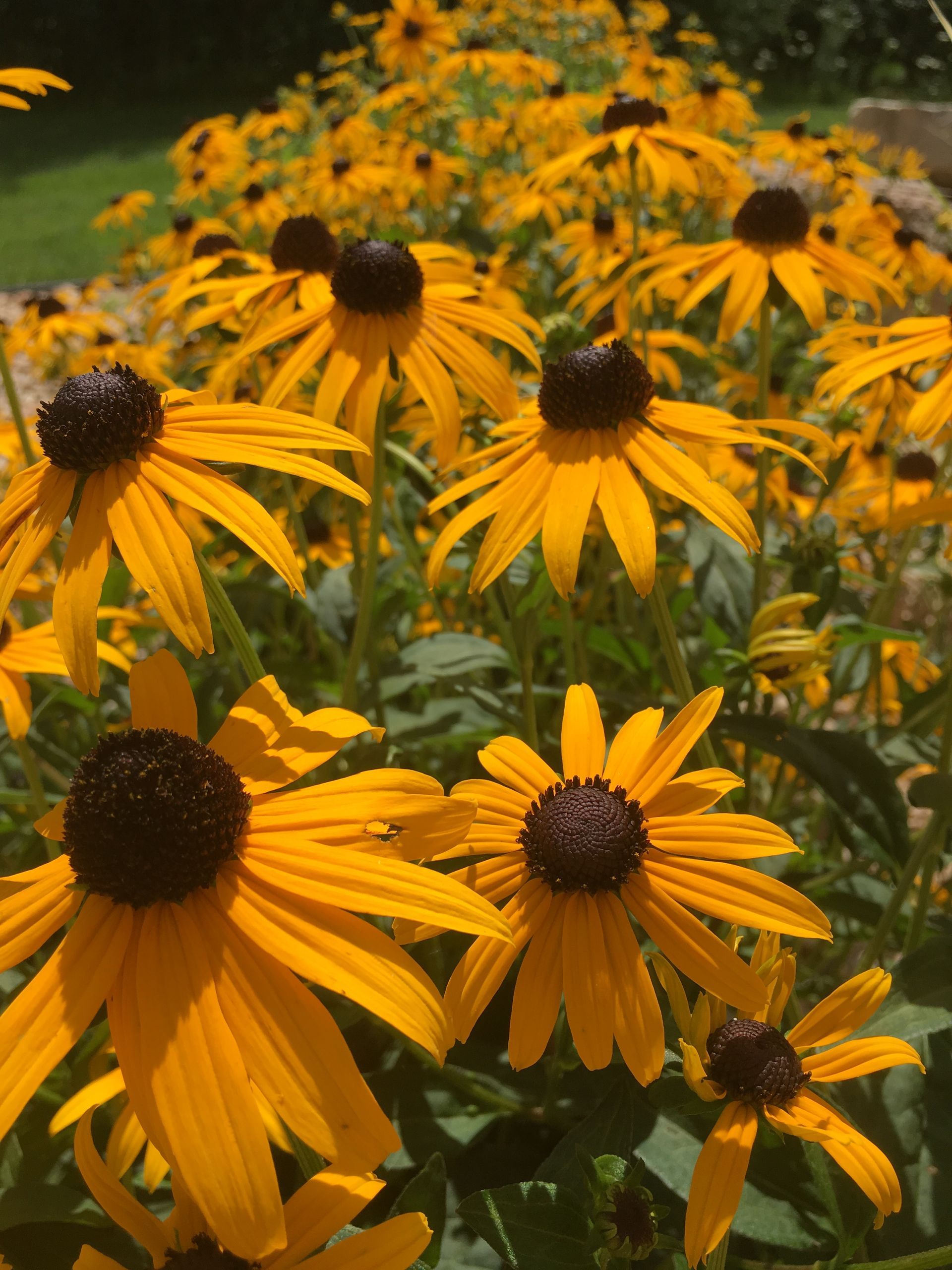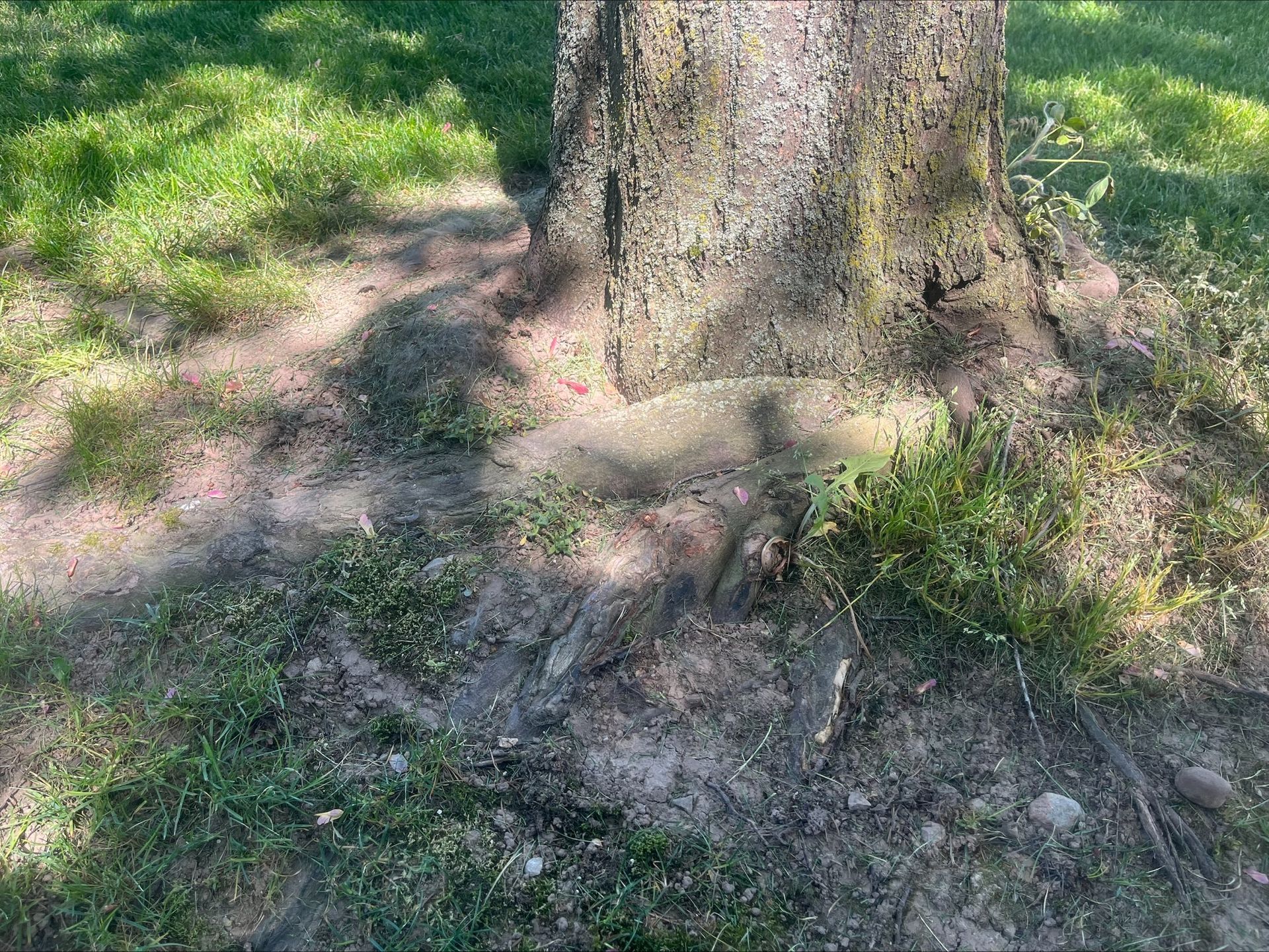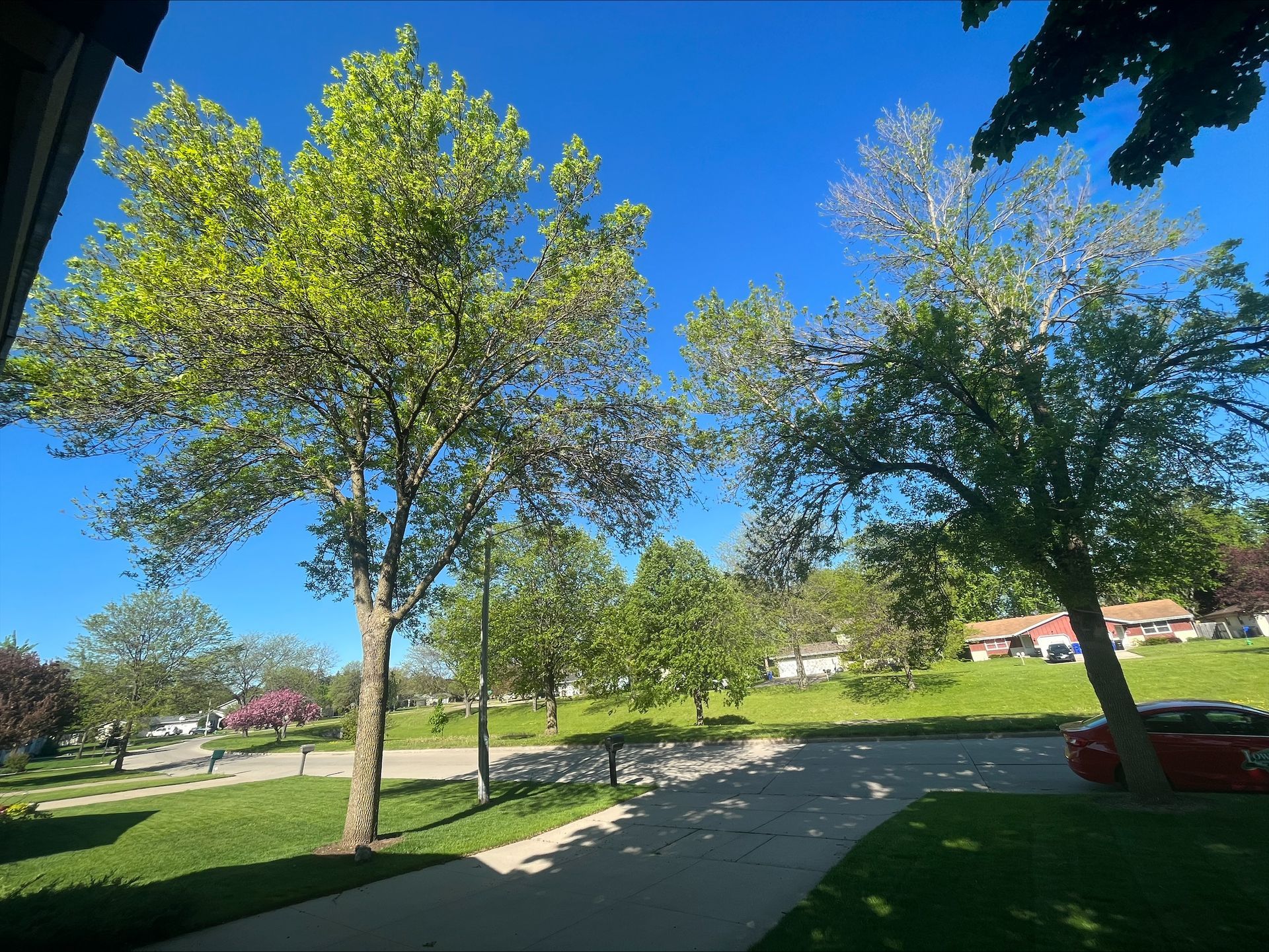Award Winning Landscape Design & Build


Lowney’s Experts Chime In: What the Wet Summer Means for Trees, Plants
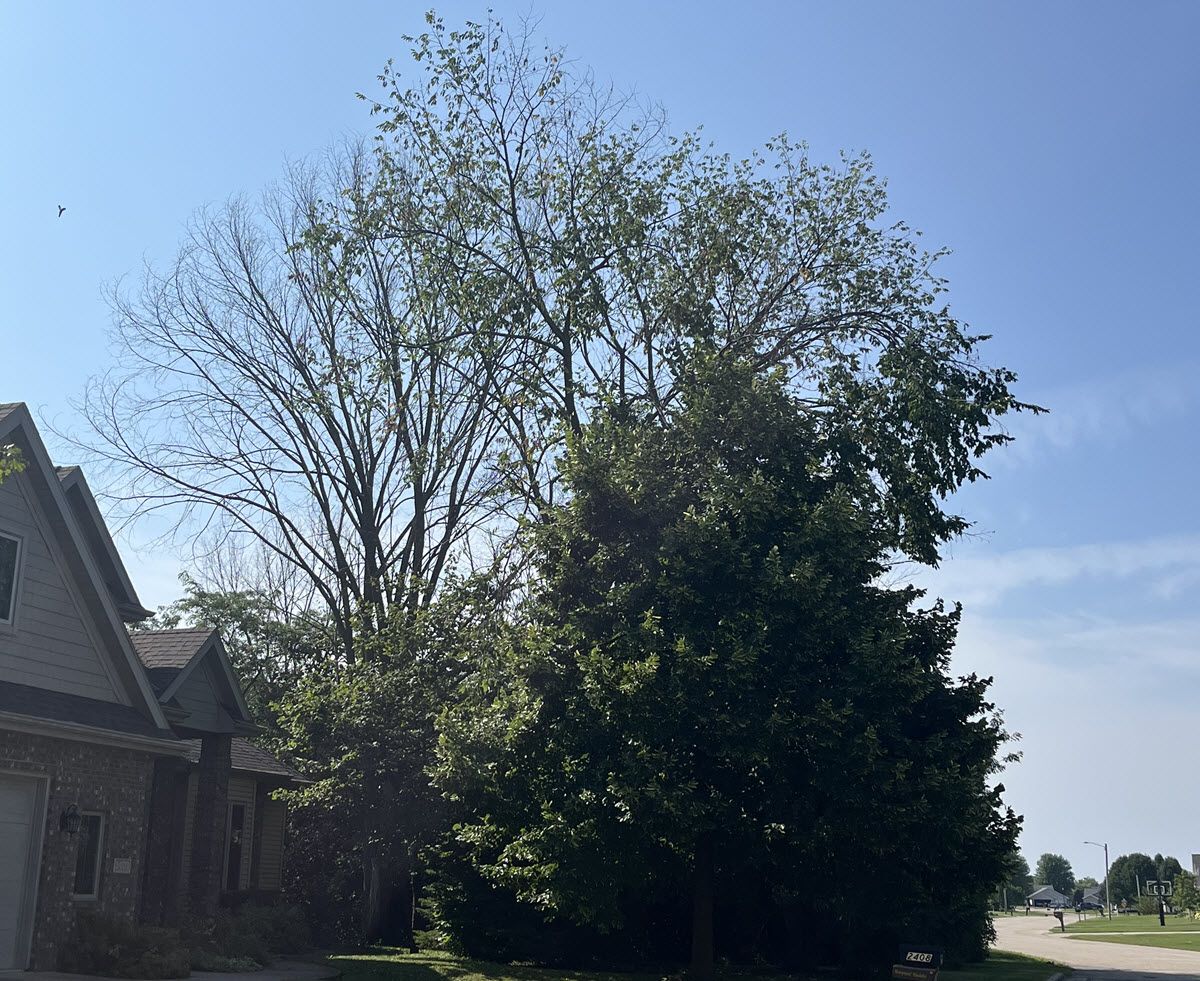
The experts at Lowney’s Landscaping have seen it all in the company’s 25-plus years, but even seasoned veterans haven’t often seen precipitation so heavy that it was negatively impacting trees and plants.
The precipitation level in the first seven months of 2024 was the most since 2013 and the second-highest total in the past few decades, and trees, perennials, and lawns have taken notice. The company’s tree service, Jason’s, has noticed the most-serious challenge with a saddening increase in the amount of oak wilt and Dutch Elm Disease, which can both be fatal.
“We're seeing a lot of oaks and elms die due to funguses because when it is super, super wet, funguses thrive and oak wilt and Dutch Elm are both fatal vascular funguses,” said Adam Pashouwer, lead arborist at Jason’s Tree Service. As an example, he said, there are currently “a ton of oaks dying in Kaukauna” and the team has been seeing a DED problem in Neenah.
Identifying those diseases isn’t all that easy for the untrained eye. Oak wilt becomes evident on red oaks when you see leaves crisping up and Pashouwer said by the time you notice that it’s often too late. White oaks are more resistant and survive more of the time.
Dutch Elm Disease can happen fast on an elm. “The leaves will turn yellow really, really quickly, and then red, and it'll dry up and it'll die in a week,” Pashouwer said.
He stressed that if your area has those diseases, you should get the preventative injection before it’s too late. “People should contact us to see if we can do a fungicide injection,” Pashouwer said. “If you think it already has oak wilt, you almost have to do an immediate treatment or it's going to die.”
Even if your area doesn’t seem to prompt the need for injections, “just make sure you do not trim any oaks or elms until winter” to prevent giving the disease easy access.
The weather has had minor effects on a few other tree species. “Locusts leafed out extremely late,” Pashouwer said. “Locusts have a non-fatal canker that will impede their health when it's super wet, but most the time they survive. Crab apples are not doing well; topical funguses are impacting them. But in this case, people can relax, they’ll be fine next year when the leaf back out in spring.”
Lowney’s horticulturalist and nursery manager Justi VanderVelden said perennials are not happy but they’re not in danger. “You will get a lot of leaf curl and you would think it's too dry, but really it's too wet,” she said. “Basically, the leaves are just trying to save themselves, so they're going to curl under because they can't get rid of all the moisture, they can't transpire it fast enough. It's just cosmetic.”
Among the crabbiest of plants currently are roses and lilacs. VanderVelden said there’s no need to worry if you get leaves wilting or dropping. "You can trim it back if you'd like, or you can just let nature take its course and next year it's going to be just fine,” she said.
The maintenance crews at Lowney’s Landscaping, which handles landscaping installations and year-round maintenance for residential, commercial, and communities, are noticing problems that are mostly annoyances and not serious.
Colin Stevenson and Steve Miller, both longtime veteran landscape maintenance crew members, said the most prevalent impact they’ve seen on lawns is red thread, a fungus caused by an overabundance of moisture. Lowney’s doesn’t typically treat red thread as it will go away when it dries back out, but it can be scary looking. Click to see photos by Googling “red thread.”
Some Fox Valley residents have noticed large infestations of beetles (Asian or Japanese, which are often hard to distinguish from each other), but Colin and Steve agreed that is not a universal problem caused by the weather. “I just think a lot of it has to do with nature because some customers don't have them on their trees while their neighbor does,” Steve said. “The neighbor can have them all over their rose bushes or their trees.”
Colin said they’re especially attracted to fruit trees, and “they love lindens and rose bushes, even vines that grow on people's houses or fences. That's what (Appleton client) Scott Castle had on all their vines. But the neighbors next door don't.”
The maintenance crews said while the beetles are likely not benefiting from the wetness, it’s not your imagination that mushrooms prosper. It would be your imagination if you believe that Lowney’s is planting them, however. “A lady called in to say that we must be putting on mushroom seeds,” Colin said.
Awards Received by Lowney Landscaping
Contact Details
Hours
- Mon - Fri
- -
- Sat - Sun
- Closed







Appleton Location

